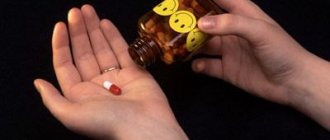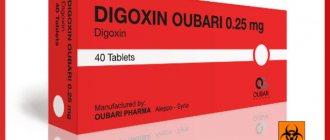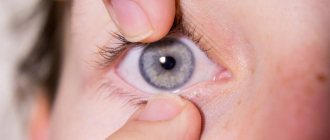Azaleptin is a drug from the group of neuroleptics that has antipsychopathic and general sedative effects. Under its influence, areas of the cerebral cortex are blocked, which are responsible for the occurrence of aggression and other emotions that are difficult to control. Although the drug is very specific, toxicologists often encounter people who have taken a lethal dose of azaleptin.
Characteristics of Azaleptin
Since alcoholism is a psychological and mental type of disease, it is characterized by the inability of a person to critically perceive his condition. A patient without alcohol has apathy, depression, psychosis, and depressed mood. To eliminate such problems, the doctor prescribes Azaleptin, which is a powerful antipsychotic.
The main ingredient of the medicine is clozapine. This substance is not the same as other antipsychotics. Narcologists call it an atypical drug. The advantages of the drug are that it has few side effects and has a gentle effect. Therefore, the drug is also prescribed in situations with insomnia, depression, schizophrenia, nervous exhaustion, manic-depressive disorders, and behavioral disorders.
Penetrating into the body, the medicine immediately blocks the functioning of neurotransmitters. After this, patients become calm, sometimes completely indifferent. This condition helps to cope with acute psychosis.
This antipsychotic should not be used simultaneously with other medications. The list of contraindicated medications included in the instructions is quite extensive. You cannot combine the medicine with alcohol.
Why does overdose occur?
People often take Azaleptin first as directed by a doctor, then get hooked, especially those suffering from insomnia. It is more difficult for them to switch to another, safe drug, although this medicine is rarely prescribed for long-term use, especially for those who do not suffer from mental illness.
They compare the effect of the drug with other, more expensive sleeping pills and soon perceive the drug along with others, forgetting about the danger. Moreover, Azaleptin is widespread, it is easy to buy at any pharmacy, and it is inexpensive. Ordinary people rarely read the annotation and soon, as they get used to it, increase the dose. This is where danger lurks.
Doctors regularly warn that even taking Azaleptin, which they recommend, poses a health threat, because it is an extremely serious drug. What can we say about uncontrolled use with a self-prescribed dosage?
Another danger is that patients often forget to tell their doctor about the medications they are taking. And having received the prescription, they take a new drug and mix it with others, often drinking it all together so as not to forget.
Often, having noticed a problem, people do not run to doctors, but sit down to browse websites, identifying positive reviews and thus judge the effectiveness of the chosen medicine. Then, after studying the instructions, they buy the product in pharmacies. They drink self-prescribed doses, which they read about either from the annotation or from the Internet, where an audience of millions shares their opinions. Moreover, naturally, such people do not think about the danger of an overdose, whether they can take Azaleptin at all.
Unfortunately, this happens very often. And purchasing medications has become much easier; pharmacies no longer have as much control over the distribution of goods. Medicines are sold to children, even those recommended only with the permission of a doctor, they are sold at home simply, without prescriptions. A special case is when acquaintances ask their doctor friend to write out a blind prescription, according to which they then take any medications without any problems, without thinking about the dangers. Amazing negligence and frivolity towards one’s own health, and everything stems from the decision not to waste time going to the clinic or standing in line.
What is Azaleptin?
Progressive alcoholism is primarily a mental and psychological disease. A person’s ability to think critically is impaired and without alcohol they experience depressed mood, apathy, depression or psychosis. To help the patient cope with this, doctors prescribe azaleptin, a strong antipsychotic.
The main component of this drug is clozapine, which is very different from other antipsychotic drugs both in composition and, most importantly, in action. Doctors sometimes call it an atypical antipsychotic. It has significantly fewer side effects and is gentler. This is why, in addition to treating alcoholism, clozapine is prescribed for:
- Schizophrenia;
- Manic-depressive disorders (in the stage of excitement);
- Behavioral disorders;
- Insomnia;
- Nervous exhaustion;
- Psychomotor disorders;
- Some depressive disorders;
- and etc.
Instructions
The doctor prescribes the dosage individually based on the patient’s clinical picture. The drug should be taken 2-3 times a day after meals, with plenty of liquid.
For adults
A single dosage ranges from 25 to 200 mg. To avoid side effects, doctors often increase it gradually, starting with a minimal amount.
- For insomnia, excessive excitability and other sleep disorders, it is recommended to drink 25-50 mg of the drug twice a day.
- Relief of anxiety symptoms is observed on days 3-6. A person's nervous tension decreases, anxiety disappears, and sleep normalizes.
- To consolidate the therapeutic effect, it is necessary to continue taking the antipsychotic for 1-2 weeks.
For children
Azaleptin is rarely used in pediatrics. Its use is allowed for serious mental disorders in children over 5 years of age. Therapy is required to eliminate symptoms:
- manic-depressive syndrome;
- schizophrenia;
- behavioral and emotional disorders.
During pregnancy and lactation
The active substance included in Azaleptin can negatively affect the fetus, so pregnant women should not use the tablets. The components of the medicine pass into breast milk. If there is a need for treatment during lactation, breastfeeding should be discontinued.
When is it appointed?
Azaleptin is a strong antipsychotic, so it helps to cope with serious mental disorders:
- schizophrenia;
- depression;
- insomnia;
- manic behavior;
- panic attacks;
- emotional exhaustion;
- psychosis;
- overexcitement.
The drug blocks the work of neurotransmitters and inhibits the functioning of the nervous system. Thanks to this, a person becomes calmer, thinks less about problems, and endures difficulties more easily.
Azaleptin is used for various psychological disorders
As part of complex therapy, the medication is prescribed for alcoholism. It helps alcoholics cope with depression and apathy, reduces aggressiveness and nervousness, relaxes and calms, and gets rid of bad thoughts.
The drug not only has a pronounced positive therapeutic effect, but also has a detrimental effect on the functioning of the heart, liver and kidneys.
It should not be taken for diseases of these organs, for epilepsy, glaucoma, disorders of the hematopoietic process, infectious intestinal diseases, alcoholic psychosis and for persons under 18 years of age.
First aid
At the slightest sign of intoxication, resort to the following procedures:
- To remove the poison, vomiting is artificially induced. Use cool water to rinse the stomach.
- Take sorbent - White or Activated carbon, Smecta, Polysorb.
Qualified therapy is needed, so be sure to call the emergency room.
The key to a speedy recovery in case of an overdose of Azaleptin is first aid, which you can provide yourself. If symptoms of poisoning are detected, it is important to take the following actions:
- First of all, call a team of specialists who will provide assistance to the victim.
- An important element in saving the victim is gastric lavage. A large amount of warm water is suitable for this. It is necessary to induce vomiting and remove the drug from the stomach.
- After removing the toxin, the victim must be given sorbents that block the effects of the medicine. In this case, activated carbon is suitable.
Note! Even if during the process of self-rehabilitation the victim has become noticeably better, the help of doctors should not be refused under any circumstances. Only a physician will determine the degree of poisoning and prescribe appropriate treatment.
Any treatment should be carried out consciously; this is the only way there is a chance for a quick recovery and relief from unpleasant ailments. Azaleptin is a strong drug that should be taken only after consultation with a doctor and a full examination.
Only in this case, side effects and overdose will be excluded, and the patient will quickly return to a normal lifestyle.
Additional Applications
Treatment of alcoholism is not the only area of application of Azaleptin and its analogues. This sedative is also appropriate for other mental disorders associated with increased anxiety and irritability. So, the list of indications for use includes:
- psychomotor agitation;
- manic states;
- depressive psychoses;
- schizophrenia.
In all cases, the drug is prescribed by a doctor who observes the patient. Dosages and duration of therapy are selected individually, but for serious mental disorders, lifelong use of Azaleptin is often required. This measure allows you to correct the patient’s condition and prevent breakdowns.
Contraindications
Who should not use Azaleptin:
- People suffering from various diseases of the blood or circulatory system;
- Suffering from alcoholic psychosis (in which case a number of other drugs are used);
- Not for pregnant women or breastfeeding women;
- Those who are currently intoxicated or after intoxication;
- For those suffering from myasthenia gravis, this is a common disease affecting the neuromuscular part of the system, which often manifests itself as fatigue;
- In a state of coma, the psyche cannot respond to the surrounding atmosphere, even to direct stimuli;
- Suffering from chronic blood-related diseases, when the level of leukocytes is dangerously low (blood cancer or AIDS, etc.);
- Having their own individual intolerance (determined empirically, by medical examination).
Any contraindication can only be accurately identified by a doctor, and only he can make an accurate diagnosis and determine whether the patient needs Azaleptin.
How does the drug affect the human body?
Once in the body, azaleptin blocks the work of some neurotransmitters. In other words, it depresses the functioning of the nervous system and the person begins to treat everything that happens not only calmly, but rather indifferently. This helps to survive acute periods of psychosis. But a characteristic feature of this antipsychotic is the fact that it cannot be combined with other drugs. If you open the instructions for this drug, you will see that the point about interactions with other medications takes up a third of all the information, which is quite a lot. It also says in a separate line that the drug should not be used with alcohol or products containing ethanol.
You may be interested in: Table of time of alcohol content in human blood
Prevention measures
If treatment with Azaleptin is necessary, poisoning can be avoided by following some rules:
- Do not store the drug in places accessible to children.
- Do not use longer than the recommended course.
- Follow the dosage prescribed by your doctor and do not change the prescribed volume of antipsychotic medication at your own whim.
- Do not use alone.
- Do not use if you have insomnia and there are no indications provided for in the instructions.
To prevent Azaleptin poisoning, it is important to follow the following rules:
- Take only after consulting a doctor.
- Follow the prescribed dosage.
- Do not use after completion of treatment.
- Do not take during insomnia unless there are other indications specified in the instructions.
- Keep out of the reach of children.
Possible side effects
The poor compatibility of alcohol with Azaleptin is based on a large number of negative manifestations, some of which can be life-threatening for the patient.
If a person decides to get rid of alcoholism, then he needs to stick to it until the end.
He should be aware of the following consequences of Azaleptin and alcohol taken together:
- liver enlargement, cirrhosis;
- cardiovascular diseases;
- alcohol intoxication;
- severe lethargy;
- delirium;
- hallucinations;
- decreased visual acuity;
- apathy;
- convulsions;
- insomnia, drowsiness;
- decreased muscle and brain activity;
- disturbance of breathing, heart rhythm;
- increased body temperature;
- loss of consciousness;
- coma.
When alcoholic beverages and antipsychotics interact, the CNS reaction is unpredictable, so you should not experiment.
Death often occurs due to alcohol intoxication, since the liver cannot cope with the assigned load. If a person survives, he will have liver problems for life.
Is it possible to simultaneously drink alcohol and Azaleptin?
When alcohol is consumed at the same time as medication, the nervous system first suffers. After a dangerous combination of substances enters the blood, excitement develops. The strength of the reaction is affected by the dose of alcohol. When it is high, the opposite effect occurs: apathy, loss of consciousness or decreased muscle activity. The body strives to quickly slow down the changes that are taking place; nerve cells stop responding to what is happening.
Dangerous enzymes enter the liver, which is not able to process them at the same time, which is why one of the ingredients is forced to wait its turn. Processing only one enzyme turns off the brain, and the patient develops a state of delirium. Afterwards, convulsions and breathing problems are noticeable. If the liver does not overcome alcohol, poisoning occurs, causing disability due to organ pathology, and even death is possible.
The body’s reaction to simultaneous exposure to active substances is as follows:
- strength suddenly disappears, overexcitation is possible;
- the pulse quickens, hallucinations occur;
- salivation increases, vision deteriorates;
- breathing is suppressed, convulsions develop;
- possible coma.
Azaleptin and treatment of alcoholism
Azaleptin has been successfully used in psychiatry for many years. It very quickly causes a sedative, calming effect. And despite all the advantages, it has one big drawback, which has already been mentioned - it is not compatible with other drugs. Most often, mixing leads to a weakening of the effect of both drugs. Therefore, azaleptin is used only in monotherapy.
Sometimes this surprises patients - is it really possible that only one drug will be needed to treat such a serious disease as alcoholism? Not really. But while the patient is undergoing treatment with this particular antipsychotic, he cannot take anything else.
Therefore, it is best if such treatment takes place in a clinic, under the supervision of doctors and nurses. Moreover, in this case, the patient will definitely not miss taking the drug, and the likelihood of an overdose will be reduced to zero.
Usually the course of treatment lasts 2 weeks and if it takes place at home, the doctor is obliged to describe the dosage and the exact time of taking the drug. Despite the fact that azaleptin itself is not addictive, after it other conventional antipsychotics and antidepressants have no effect on a person.
You may be interested in: Alcohol and activated carbon: when and how to take it correctly
Doctors' warnings
Alas, modern life is full of stress; reasons for worry and restless sleep are found literally in a second. Every day people receive a ton of information, are forced to solve dozens of small problems that arise and are constantly nervous. They are afraid for their future, worried about their loved ones. The result is insomnia and irritability, from which even the most gentle and calm person can suffer. Monks are famous for their philosophical attitude to what is happening around them, but ordinary people are far from harmony with the outside world.
And when the usual means of calming down: hot tea, delicious food, a favorite show, rest don’t help, people run to doctors for sedatives. It is rare that an adult does not fall asleep without a sedative; even children suffer. But if people consult doctors and take prescribed medications, this is good, but most waste their time and go to pharmacies themselves, asking pharmacists for advice.
Unfortunately, pharmacy sellers do not have x-ray vision and, according to the client, it is very difficult to determine his condition. They know their range, they know the effect of drugs, so they recommend a number of antipsychotics or sedatives that, in their opinion, are most effective. Clients check the price, read the annotations and take it. Bypassing the doctor, a thorough examination. Alas, any city is full of pharmacies, and the words of a pharmacist are sometimes enough for them.
Important: of course, pharmacy sellers are certified specialists, they have a higher medical education (or secondary specialized education, after college), but these are pharmacists, not doctors! They know the properties of drugs, they know where and why to use which drug, they know their effect. However, no pharmacist can determine the diagnosis of a client who comes to the pharmacy only by external examination or by listening to complaints.
He can only recommend a drug based on the expected diagnosis. Therefore, if you notice any of the serious symptoms, be sure to go to a real doctor. This will save you from future complications. Take your time. Moreover, irritability, aggression and other neurological problems are as serious as physical pain. Remember, health is priceless.
About the consequences of combining medication with alcohol
Ethanol first stimulates the nervous system and then depresses it. The main ingredient of the drug also depresses the central nervous system. Therefore, if you take Azaleptin and alcohol at the same time, the consequences are disastrous. First, a delusional state develops, inhibition of reactions. Moreover, this option is the most favorable.
Effect on the heart and nervous system
The work of the heart muscle depends on various factors. The use of antipsychotics has a negative effect on this organ. Regular use of sedatives causes the heart muscle to wear out.
Alcohol has the same effect on the heart. In people who drink regularly, this organ degenerates and its tissues are replaced by a fatty layer. Such changes negatively affect the functioning of the heart muscle.
Drinking alcohol with an antipsychotic can provoke heart failure or myocardial infarction. When an alcoholic combines these substances, anger and irritability may occur. Alcohol addicts should completely abstain from drinking during treatment.
Neuroleptics are used to achieve a sedative effect. However, alcohol blocks their action. As a result of combining booze with pills, problems arise in the functioning of the nervous system. Patients experience prolonged depression and stress.
Load on the liver
Ethanol is a toxic substance. When drinking strong drinks, the liver is the first to be affected. It is this organ that is responsible for the breakdown of alcohol.
Azaleptin is also metabolized by the liver. Even treatment with the drug negatively affects the state of the body's natural filter. This is especially true for individuals with existing liver abnormalities.
As a result of combining alcohol with a neuroleptic, the toxic effect on the liver is significantly enhanced. The tandem provokes the death of hepatocytes. Drinking alcohol with pills causes the patient’s condition to worsen.
Load on the heart and nervous system
The heart is a muscular organ that pumps blood throughout the body every minute, ensuring gas exchange in organs and tissues. Its work depends on many external and internal factors. Thus, taking antipsychotics does not always go without leaving a trace. The heart wears out with regular use of sedatives.
A similar situation occurs when drinking alcohol. Muscle tissue in alcoholics gradually degenerates into fat. This means that the heart cannot perform the usual amount of work. As a result, the risk of pathologies increases, including myocardial failure or myocardial infarction.
Azaleptin is designed to eliminate excessive anxiety and eliminate attacks of aggression. In alcoholics, the nervous system is often in an excited state. This provokes atypical reactions - anger, irritability.
Neuroleptics calm the psyche, but concurrent use of alcohol reduces their effectiveness to a minimum. In addition, sudden changes are fraught with even greater problems - prolonged depression, stress.
Increased side effects
During a course of Azaleptin, the patient may experience side effects of the drug. If you drink while using sedative pills, the likelihood of negative reactions increases significantly. Ethyl alcohol can also intensify these manifestations.
Among the most common abnormalities are dizziness, headaches, confusion and fainting, which occur periodically. These reactions may also include vomiting and nausea. Convulsions and heart rhythm disturbances are possible.
Even a small dose can cause complications. Some people believe that low-alcohol drinks will not harm the body during the course, but this is not so. Even non-alcoholic beer contains 0.5% ethanol. Therefore, when using an antipsychotic, you should avoid any drinking. Sometimes, in the case of combining strong drinks and Azaleptin, a large dose of alcohol turns out to be fatal for the patient.
Symptoms of intoxication
Azaleptin poisoning is accompanied by characteristic signs of central nervous system damage. Almost all internal organs suffer.
Effect on the nervous system:
- Dizziness.
- Localization of pain in the temporal region.
- Temperature that cannot be eliminated with antipyretics.
- Brief fainting.
- Excitability, agitation, motor restlessness.
- Increased tone of skeletal muscle tissue.
- Tremor of fingers.
- Inadequate response to stimuli.
- Confusion.
- Impossibility of voluntary movement.
- Deterioration of sleep.
- Depression.
- Possible short-term memory loss.
- Convulsions resembling epileptic ones.
As a result of the lesion, the following symptoms develop:
- Pale skin – becomes marbled and cold to the touch.
- Blood pressure readings change.
- Weakness appears sharply.
- There is profuse sweating.
- The daily volume of urine decreases, and there is likely a complete absence of urine output.
- Potency is impaired.
The picture is complicated by signs of general intoxication:
- Nausea and vomiting.
- Dryness of the oral mucous membranes.
- Active flow of saliva.
- Epigastric pain.
The clinical picture depends largely on the condition of the affected organs:
- When exposed to the circulatory system, there is a decrease in the concentration of granulocytes. The main symptoms are fever, severe thirst, inflammation of the gums and mucous membranes.
- If there is a negative impact on the pulmonary system, shortness of breath appears, breathing is “fast”.
- Chronic intoxication provokes metabolic disorders. Sometimes the patient gains weight.
- Possible intestinal atony.
An overdose often leads to lethargic sleep or coma.
What will happen to the body if the medicine and ethyl alcohol are used simultaneously?
The central nervous system will take the first blow. As soon as a dangerous combination penetrates the blood, a person experiences excitement, an uncontrollable surge of energy. The reaction depends on the dose of alcohol: the higher it is, the faster the reaction and the more serious the consequences. With high doses of ethyl alcohol, the opposite effect is possible: lethargy, apathy, decreased brain and muscle activity, loss of consciousness.
You may be interested in: Is it possible to drink ALCOHOL on Easter and what kind of alcohol is acceptable?
The body reacts sharply to the changes taking place and tries with all its might to slow them down. The cells cease to perceive the pathogen, and the person becomes detached.
The processing of dangerous enzymes moves to the liver. The body cannot process both substances at the same time, so one component will have to wait. Processing one of the toxic enzymes literally turns off the brain, and the person falls into a state of delirium. When he wakes up, he may feel convulsions, lethargy, breathing problems and a depressed psycho-emotional state. If the liver fails to break down the alcohol, serious poisoning will occur, which can lead to death, lifelong liver problems, or disability.
What will happen to the body at the moment of synchronous ingestion of active substances:
- a sharp loss of strength and confusion, which alternates with hyperexcitation;
- hallucinations;
- increased heart rate, irregular heart rhythm and increased body temperature;
- increased salivation;
- decreased visual acuity;
- convulsions and tremors;
- respiratory depression;
- coma is possible.
A specific antidote that could affect the patient’s condition is still unknown to science. When combined with ethyl alcohol or an overdose, the stomach is most often washed with enterosorbent drugs, and control of breathing and heart rate is established. Depending on the symptoms and reaction of the human body, the doctor prescribes individual treatment for a specific case.
Do not self-medicate, strictly follow the therapeutic course and be healthy!
Manifestations of overdose
It is clear that the lethal dose of Azaleptin is 600 mg (and higher, of course), but even a small overdose can have serious consequences. How to detect it in time?
- Increased drowsiness (this is difficult to detect when the medicine is used as a sleeping pill);
- Lethargic sleep, sometimes coma (serious overdose);
- Fuzzy consciousness (confusion, possibly reflected in perception, memories, behavior will change if you observe the person);
- Increased salivation, also increased heart rate;
- The temperature changes sharply (and in any direction);
- Blood pressure also decreases;
- Vision is impaired or loss of consciousness.
If you identify any of these signs, you need the help of loved ones. Call a doctor, then immediately rinse the stomach with some emetic or activated charcoal. Watch your breathing, it is important to stabilize it, monitor your pulse.
Do not use adrenaline or quinidine, nor procainamide. Be sure to tell visiting doctors about the cause of the condition so that they can immediately take the necessary measures, gradually reducing the amount of Clozapine.
To avoid consequences, it is better to immediately seek medical help if Azaleptin poisoning is evident.
Special instructions for taking the medicine
When taking Azaleptin, drinking alcohol is strictly prohibited. You are constantly required to donate blood for testing. During the treatment period, it is not advisable to drive a vehicle or show restraint in any work that requires concentration and reaction speed.
The doctor prepares an individual treatment plan for each patient. Azaleptin is an effective medicine that saves from alcohol addiction and mental disorders. It should not be consumed simultaneously with alcohol. Like any psychotropic drug, Azaleptin calms the nerves and relaxes, but alcohol has the opposite effect.
Because of this, stress develops as the body has to cope with different actions at the same time. At the same time, the drug enhances the effect of alcohol, which is absorbed more quickly into the blood, poisoning the body. All this can end in disaster.











